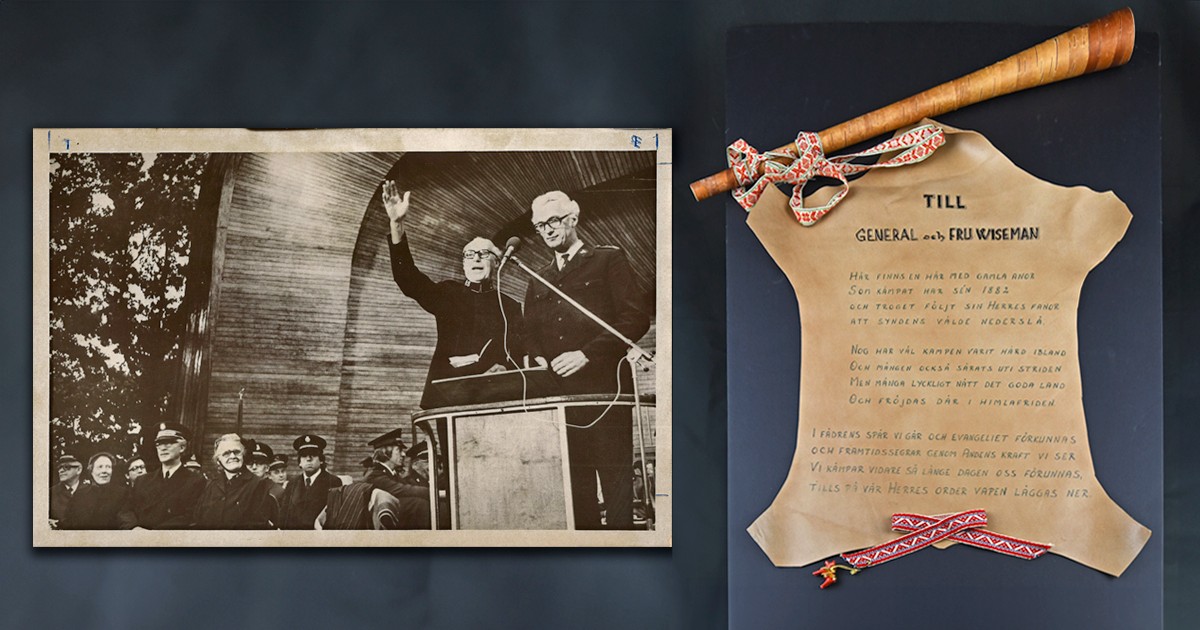Have you ever given much thought to sitting? I’ll be honest, before writing this article I hadn’t thought much about it. Sitting is a part of daily life. The average person is estimated to sitbetween six to eight hours per day. Whether it’s having a meal, working at a desk, taking the subway or settling into a comfy La-Z-Boy to binge-watch a favourite program, we all spend alot of time sitting.
This article is a product of my reflection not so much on sitting but on the chairs in which I have sat. Throughout my life, I have occupied different chairs and each of them has represented a different time in my personal and ministry development. As a child, I was one of seven children growing up in a home with officer parents. Some of my fondest memories were sitting around the dinner table as a family and listening to everyone’s stories of their day,sharing in a meal and ending with Bible promise cards that we would each read before Mom or Dad would pray. The feeling of belonging and the sense that I was part of something bigger than myself was foundational to my personal and spiritual development.
Throughout my officership, I have had the privilege of sitting in a variety of chairs. These chairs have been in corps, divisions, training college, territorial headquarters and International Headquarters. Like the chair of my childhood around the dinner table, all these ministry chairs have given me the sense that I am part of something bigger than myself and have helped me understand the mission of the church and my part in it.
When I arrived in my most recent appointment, I entered the world of mission support. In The Salvation Army, we use terms, such as mission delivery and mission support, to clarify how different parts of the Army function to achieve our overarching mission “to share the love of Jesus, meet human needs and be a transforming influence in the communities of our world.” A new chair for me to sit in and new things to learn.
One of my first meetings in this new chair was with our finance team. I had reviewed all the documents left for me and had prepared questions to seek clarification on specific details associated with the new role. I was ready to dive into the world of mission support. To my surprise, the first words spoken in the meeting were these: “You need to know that mission is our priority.” I must have looked a bit surprised. I thought we support the mission; we don’t do the mission. Clearly, there was much for me to learn in this new chair.
My second meeting was with our IT department, and I came away feeling just as confused as the first. Every member of our IT team spoke not of systems integration or software interconnectivity; they didn’t explain why we needed a new CRM or DXP. We went around the room and every single person spoke about how the mission had led them to come and work for the Army.
This “mission story” repeated itself in my meetings with every departmental group I met. Our people resonate with and are inspired when they do the mission.
As I sat in my chair pondering this strange new world I had entered, I concluded that mission is not just a matter of geography—being in a specific ministry unit or community—but of geometry: how we as independent beings of all shapes and sizes interact with one another. How our lives intersect at various points and how these points allow God to speak to us and through us for the building up of his kingdom.
Mission is purposeful movement—following God’s leading from one place to another for a purpose. From this chair, the reality dawned on me that the Army doesn’t do mission, the Army is mission—we were formed to follow God’s leading for a specific purpose. To reach those who could not be reached by traditional means. To show up in places where God’s redemptive grace could not be seen or experienced.
The New Testament shares 46 stories of Jesus’ life intersecting with others. The locations are different, the context changes and the needs are not the same. But the commonality of all the stories was Jesus’ purposeful movement to be with his people and about his Father’s business.
As I sit in my chair, start up my computer and prepare for another day, I am more aware that I am not just part of mission support. I am called to move purposefully in this world, to find the places and spaces where my life intersects with those around me, and to be an ambassador for Christ.
There is still a lot for me to learn in this chair, but it’s becoming a bit more comfortable!
Lt-Colonel Keith Pike is the territorial secretary for business administration.
Illustration: nadia_bormotova/iStock via Getty Images Plus










Leave a Comment